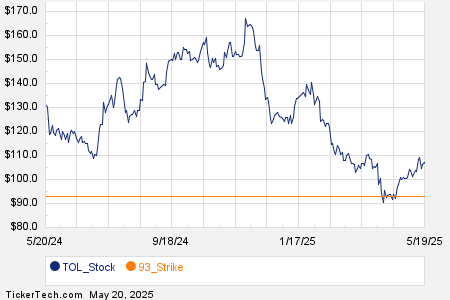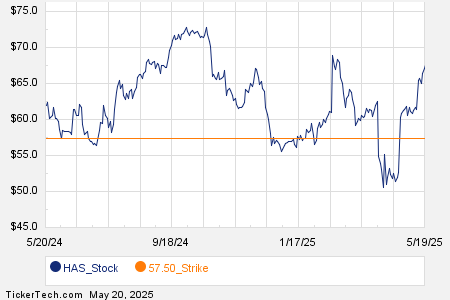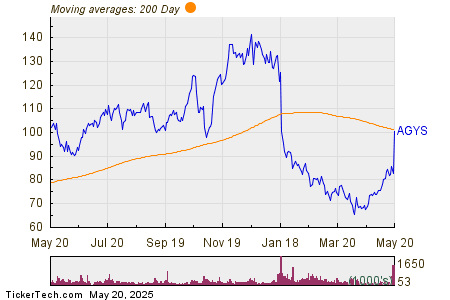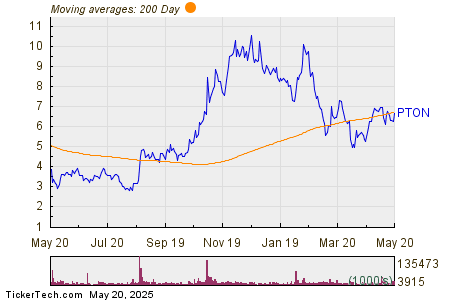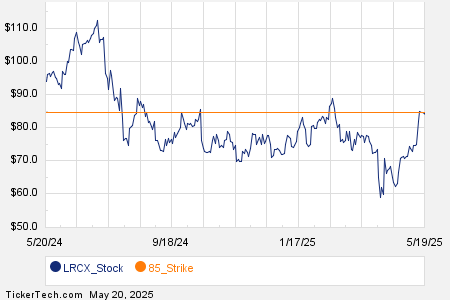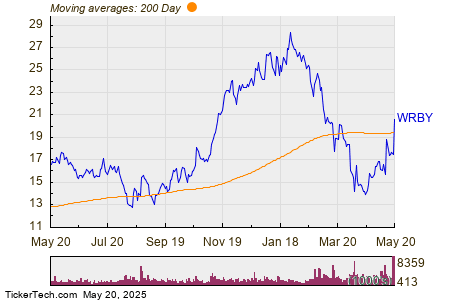Growth Stocks Shine as Tech Giants Lead the Market
Growth stocks have significantly outperformed various asset classes over the last two decades. In particular, large-cap technology leaders have contributed most of these returns, benefiting from developments in the internet, cloud computing, and artificial intelligence (AI). A select group of tech giants has driven the majority of the S&P 500‘s gains in recent years.
This trend seems poised to continue, possibly accelerating. Future catalysts include the anticipated “iPhone moment” for robotics, the rise of artificial general intelligence (AGI), and advancements toward a commercially viable quantum computer.
How can investors capitalize on this transformative wave? While index funds offer diversified exposure with limited volatility, individual stocks present the biggest opportunities—and risks. For long-term investors, here are three tech companies positioned to excel in the upcoming innovation surge.
Amazon: From E-commerce to AI Powerhouse
Amazon (NASDAQ: AMZN) is evolving beyond its e-commerce roots, becoming a diversified technology giant. While its retail operations provide substantial scale, Amazon Web Services (AWS) has become the primary profit generator, reporting $11.5 billion in operating income in Q1 2025. AWS commands about 30% of the global market share, positioning Amazon to leverage the rapid growth in AI workloads.
CEO Andy Jassy noted that AI-related cloud services are growing at triple-digit rates as companies rush to adopt generative AI applications. Furthermore, Amazon is enhancing its fulfillment processes through over 750,000 robots, which increase order processing speed by 25% and reduce costs by a similar percentage. Analysts at Morgan Stanley project these automation efforts could generate $10 billion in annual savings by 2030.
Looking to the future, Amazon’s early investments in quantum computing—via its AWS Braket platform and proprietary “cat qubit” technology—could be groundbreaking as this technology continues to develop. With a current valuation of 31.8 times forward earnings, Amazon represents an appealing entry point into one of the most diversified firms in tech. The primary risk lies in the evolving tariff negotiations affecting its business.
Meta Platforms: All-In on the Metaverse
Meta Platforms (NASDAQ: META) has made a remarkable recovery following challenges in 2022. Under the leadership of CEO Mark Zuckerberg, the company has restructured significantly, cutting costs and focusing on AI initiatives. The result is a leaner Meta that dominates in social media.
Meta’s applications—Facebook, Instagram, WhatsApp, and Messenger—now serve over 3.4 billion active users daily, providing unmatched advertising reach. These scale effects contributed to a revenue increase of 16% year over year in Q1 2025, reaching $42.3 billion due to more effective advertising through AI-driven recommendation engines.
Although Reality Labs revenue dropped 6% amid decreased sales of the Quest headset, Meta remains dedicated to its metaverse vision. The company is also constructing one of the world’s largest AI clusters, using 350,000 Nvidia (NASDAQ: NVDA) H100 graphics processing units (GPUs) by the end of 2024—equivalent to 600,000 GPUs in total compute power. Trading at approximately 23 times forward earnings, Meta presents promising short-term cash flow and long-term growth potential from its AI and immersive computing initiatives. Its main risk is the sustained popularity of its app lineup.
Nvidia: The Semiconductor Powerhouse of the AI Age
Nvidia has become the leading force in the AI landscape, evolving from a graphics chip manufacturer to a critical infrastructure provider for AI globally. The company’s dominance in AI accelerators is significant, with a majority of large-scale AI training relying on Nvidia’s GPU architecture. Additionally, its Compute Unified Device Architecture (CUDA) software platform has created a strong lock-in effect, enhancing its competitive lead.
This dominance is reflected in its financial performance. For the fourth quarter of fiscal 2025, Nvidia reported revenue of $39.3 billion, a staggering 78% year-over-year increase. The data center segment alone grew by 93% to $35.6 billion compared to the previous year. Gross margins reached a robust 73%, driven by soaring demand for high-performance AI chips.
Despite its strong positioning, competition is intensifying as other companies aim to create rival ecosystems that could potentially impact Nvidia’s growth trajectory. This is a critical risk for investors to monitor moving forward.
However, Nvidia is not solely reliant on one aspect of its business. Under CEO Jensen Huang, it is developing a comprehensive AI ecosystem that includes CUDA, enterprise-grade software, and the Nvidia Inference Microservices (NIM)—a toolkit enabling developers to deploy optimized AI models across both cloud and edge environments. This platform-wide strategy establishes Nvidia as both a component supplier and an all-in-one AI solution provider.
Currently, the stock is trading around 31 times forward earnings. This premium seems justified considering Nvidia’s exceptional earnings growth and its pivotal role in driving the global AI transformation. Consequently, Nvidia stock is an essential holding for investors looking for exposure to AI infrastructure in its broadest sense.
Summary of Investment Opportunities
If you’ve ever felt you missed opportunities to invest in successful stocks, this just might be your chance.
Occasionally, our analysts issue a “Double Down” Stock recommendation for companies poised for significant growth. If you’re concerned about missing out, now is an optimal time to consider investing:
- Nvidia: An investment of $1,000 made when we doubled down in 2009 would now be worth $351,127!
- Apple: A $1,000 investment from 2008 would have grown to $40,106!
- Netflix: A $1,000 investment from 2004 would now be worth $642,582!
Currently, we are issuing “Double Down” alerts for three remarkable companies, available when you join Stock Advisor. Opportunities like this may not come around often.
*Stock Advisor returns as of May 19, 2025
John Mackey, former CEO of Whole Foods Market, an Amazon subsidiary, serves as a board member of The Motley Fool. Randi Zuckerberg, former market development director and spokesperson for Facebook and sister to CEO Mark Zuckerberg, also serves on its board. George Budwell has positions in Nvidia. The Motley Fool has positions in and recommends Amazon, Meta Platforms, and Nvidia. The Motley Fool follows a disclosure policy.
The views and opinions expressed herein are solely those of the author and do not necessarily reflect those of Nasdaq, Inc.


